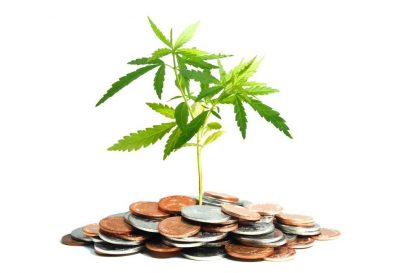
Stand For Craft Releases White Paper – Cannabis News, Lifestyle
Stand For Craft has published a white paper highlighting the Canadian government’s financial barriers to small craft cannabis growers. The report criticizes the federal consumption tax, or “sin tax,” which places a disproportionate burden on smaller artisan businesses.
The man behind Stand For Craft, Dan Sutton, shared the white paper with all levels of government. He tweeted: “Current policies disproportionately harm small producers and prevent them from building viable businesses. We conducted a thorough financial analysis, reflecting data for 3 years now, to show that income remains restrained at $1M, $5M, $10M or $20M in annual sales.”
Stand for white craft paper
The white paper from Stand for Craft leaves nothing to be desired. Blaming the current excise regime for “systematic inhibition”.[ing] prevent artisans from generating viable income.”
The White Paper continues: “Current policies significantly restrain competition by centralizing economic benefits to a small number of large beneficiaries. These companies are able to wait out the price drop and watch their competitors fail, ultimately leading to continued and accelerating oligopolization of this emerging market.”
It’s a topic that we’ve covered here at Cannabis Life Network since the beginning. While many in the culture supported Justin Trudeau’s 2015 campaign to legalize cannabis and mistakenly believed he would legalize BC Bud, the rest of us had more insight. To quote Beatles drummer Ringo Starr, “Anything the government touches turns to crap.”
And that includes cannabis. The Stand For Craft white paper uses three years of legal sales data to show this.
Industry Roundtable to save the day?
Stand For Craft’s Dan Sutton notes that the recent federal budget promised a cannabis industry roundtable. But as other craft organizations have pointed out, if the government is consulting the same people who benefit from the current system, what good is the Industry Round Table?
A better question is: how necessary is the Round Table? As the Stand for Craft white paper notes, federal and provincial governments have not made collective progress on the excise tax front. If they aren’t interested in listening now, why later? What will have changed?
The Stand for Craft white paper compares Canada’s excise tax regime to some of the legal cannabis regimes in the United States. Namely Arizona, Massachusetts, Michigan, New Mexico, Vermont and Washington. These states collect excise taxes from retailers instead of farmers. That way, excise taxes never exceed 15 percent of a product’s selling price. Compared to the 25%+ faced by Canada’s craft builders.
In other words, each US state is responsible for its cannabis laws. The places that resemble Canada’s system of taxing farmers, such as Alaska and California, have similar problems. So follow Canada’s example if you want to oust craft growers and bolster a large corporate conglomerate.
Stand For Craft White Paper shows how much governments are taking

The Stand for Craft white paper shows how much governments collect in excise taxes. In 2021, cannabis use taxes contributed 0.05% of total federal tax revenue. But as tiny as it looks, that’s higher than the taxes collected from wine sales. But it pales in comparison to taxes levied on beer sales.
As Dan Sutton tweeted, “We looked at similar Canadian industries like beer, wine and spirits, which have spent decades reforming their tax policies to better support small businesses. Instruments such as tiered taxation and rebates based on production volume led to a ‘rural renaissance’ or local impact.”
In addition, the white paper describes how excise taxes work for other industries in Canada. It states: “For domestic, low-margin agricultural production, a supportive excise regime can help make or break an industry. Without viable domestic production from licensed operators, alternative product supplies will inevitably take their place.”
Designed to fail?
Stand For Craft leader Dan Sutton tweeted, “The 5 largest producers all have enough cash for more than two years of runway at current burn rates. When that’s gone, they’ll all have proven they have no problem raising exceptionally dilutive equity at any cost. They’re not going anywhere.”
So the fact of the matter is that big LPs can afford to continue operating at a loss. But the consumption tax hits small craft businesses disproportionately. Some may think this is just government incompetence. But anyone who has studied this closely knows that this is not an unintended consequence of clumsy bureaucrats.
In summary, there is a concerted effort to ensure that Canadian cannabis never reaches its true potential. That’s why legalization looks the way it looks. That’s why they left BC Bud out from the start. It’s not about your intrinsic freedom to grow and consume a natural plant. It’s about money, power and control.
Governments have banned cannabis for decades. Now we expect them to regulate it effectively? Based on what?

Post a comment: